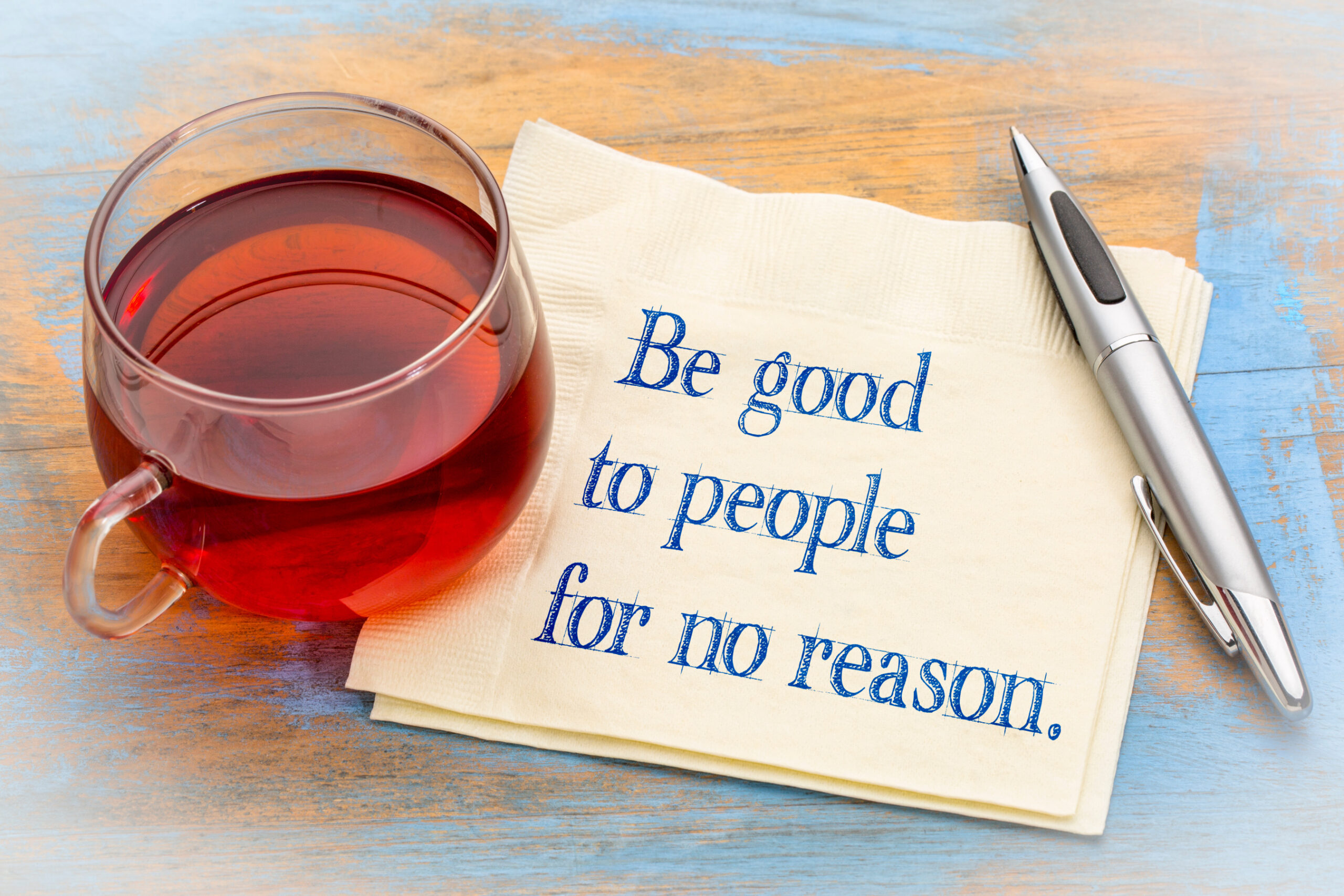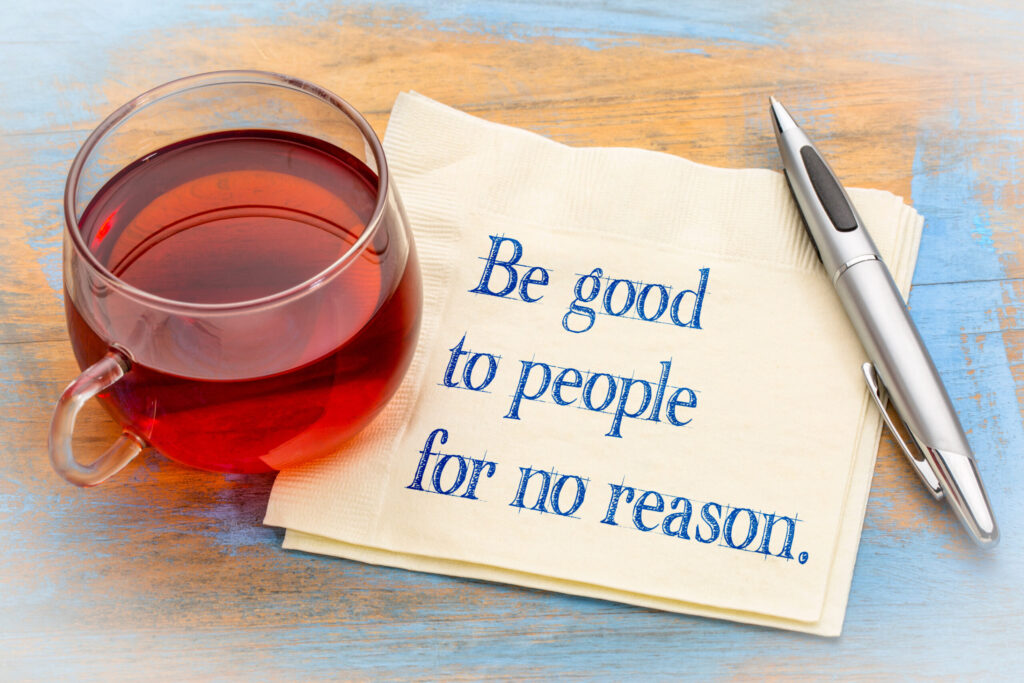Why Small Acts of Kindness Can Change the World: The Power of Civility in Our Daily Lives

In a world that feels increasingly polarized, it’s easy to become disheartened by the endless noise that surrounds us. From political battles to social media spats, it often seems as if we’ve lost touch with the values that once defined our interactions with one another. Amidst the chaos, kindness, respect, and civility stand as quiet but powerful forces, capable of bridging divides and creating real, meaningful connections. These principles—once the cornerstone of American life—are more crucial now than ever before.
The shift in societal norms has left us yearning for a return to something simpler, something that doesn’t rely on grand gestures but on consistent, everyday actions. The basic tenets of kindness and civility, though often overlooked, are the glue that holds communities together. These small acts of decency might seem insignificant in a world that demands constant productivity and rapid responses, but they have the potential to foster understanding, unity, and resilience in ways that larger, more visible efforts can’t always achieve.
It’s easy to get caught up in the rush of modern life, but when we stop and consider how our words and actions affect others, we can begin to see the deep impact of kindness. The truth is, kindness isn’t just about being nice—it’s about making a deliberate effort to respect the boundaries and experiences of others. It’s about fostering a sense of belonging, understanding, and empathy in an era when those qualities sometimes feel in short supply.
Let’s explore how practicing civility can guide us toward building a more empathetic, understanding society.
In the fast-paced, information-saturated world we live in, it’s easy to forget the importance of respecting others’ personal boundaries. We’re often eager to connect, share, or offer advice, but sometimes, what people really need is space. It’s not just about physical space—it’s also about mental and emotional space. When we engage in conversations, particularly those about sensitive topics, we must be mindful of where others draw the line. This is particularly important when it comes to conversations about health, personal struggles, or life changes.
It’s all too common for people to feel the pressure to disclose private matters in conversations. Whether it’s about a recent health issue, a family matter, or even something as simple as how their day went, many feel compelled to open up when asked—sometimes out of politeness or a sense of obligation. However, not everyone is comfortable sharing those personal details, and that’s okay. Recognizing when to respect silence and when to step back can be a powerful form of civility.
Instead of pressing someone for details, we can offer our support through simple, open-ended responses that invite the other person to share only what they feel comfortable with. Phrases like, “I hope everything’s okay” or “Take care of yourself” can be more effective than intrusive questions, showing that we respect their space while still offering empathy.
This lesson goes beyond just being polite; it’s about acknowledging that people have the right to maintain control over their own stories. By practicing this, we create an environment where others feel comfortable and empowered to share on their terms.
In an age of constant distraction, it’s easy to forget that the most meaningful conversations often happen when we simply listen. Listening with empathy means engaging with the other person—not just hearing their words, but understanding their emotions and experiences. When we listen without judgment, without the intent to respond or offer advice, we show the other person that their feelings and perspectives are valid.
It’s tempting to interrupt or offer a solution when someone shares a problem, but sometimes, what people need most is to feel heard. By resisting the urge to jump in, we allow them to express themselves fully and process their thoughts and emotions. This doesn’t mean that we never give advice or support, but that we recognize the value of holding space for someone else’s feelings first.
Empathetic listening can have a transformative impact on relationships. It deepens connections, builds trust, and encourages more meaningful, authentic interactions. The next time you’re in a conversation, remember that it’s not just about what you say—it’s about what you hear and how you make the other person feel.
Civility isn’t something that’s reserved for formal settings or special occasions—it’s something that should be woven into our daily lives. The way we interact with others, whether in a business meeting, a social gathering, or a casual encounter at the grocery store, can shape the tone of our society. It’s easy to slip into frustration or impatience, especially when we’re faced with stress or disagreement, but maintaining a sense of civility can help defuse tension and prevent small issues from escalating into larger conflicts.
Take, for example, the way we handle disagreements. It’s natural to have differing opinions, but how we express those opinions can make a world of difference. Instead of resorting to heated arguments or dismissive comments, we can engage in respectful dialogue, where we listen to the other person’s point of view and express our own without belittling or insulting them. Civility doesn’t mean agreeing on everything—it means treating each other with respect even when we disagree.
In a polarized society, these small acts of civility can help break down barriers and remind us that, despite our differences, we are all human. Whether we’re having a disagreement with a colleague, a friend, or a stranger, practicing kindness and respect helps us maintain our shared humanity.
Sometimes, we underestimate the power of small gestures. A smile, a kind word, holding the door for someone—these simple actions can have a ripple effect. When we show kindness to others, it not only brightens their day, but it also encourages them to pass that kindness along. This creates a cycle of positive energy that can spread far beyond what we might expect.
It’s easy to dismiss these small acts as insignificant, but their impact is far-reaching. By embodying kindness in our everyday lives, we inspire others to do the same. And as we create a culture where kindness is the norm, we strengthen the bonds within our communities, making them more resilient and compassionate.
At the heart of these principles is the idea that our actions—no matter how small—have the power to shape the world around us. Every act of civility, every moment of kindness, contributes to a greater whole. In a world that often feels divided, these small but powerful actions are a reminder that we have the ability to make a difference. By listening, respecting boundaries, and treating others with kindness and empathy, we can help restore the civility that once defined our communities.
As we move forward, let’s remember that living civically isn’t just about following rules or checking boxes. It’s about cultivating a culture of respect and understanding that fosters connection and compassion. Together, we can rediscover the enduring power of kindness and civility, creating a society where every person feels valued and heard.
RECENT










BE THE FIRST TO KNOW

More Content By
Jessica Curtis










